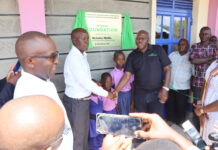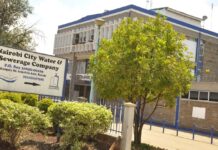Governor Dr. Julius Malombe has outlined a sweeping array of environmental conservation, energy access, and climate adaptation initiatives during his State of the County Address delivered on July 8 at the Kitui County Assembly. The address emphasized his administration’s commitment to sustainable development and natural resource protection across the county.
In his speech, Governor Malombe announced that his government has successfully implemented 1,921 infrastructural projects across all 40 wards and 247 villages in just two years and ten months. Of these, 989 projects were executed under the Community Level Infrastructure Development Programme (CLIDP), a flagship initiative aimed at equitable growth and poverty reduction.
Environmental Protection and Climate Resilience
Highlighting Kitui’s dedication to environmental restoration, Governor Malombe revealed the planting of over 60,000 tree seedlings and the dispersal of 2,500 kg of seedballs across fragile ecosystems including Mumoni, Mutha, and the Kyui Ranges. Under the Financing Locally-Led Climate Action (FLLoCA) program, 24 mega sand dams have been constructed, improving water retention and supporting irrigation.
The governor also announced ongoing works on three major sump-wells, Katse-Nguuku, Kaningo-Karumu, and Tiva Ivovoa, expected to boost water supply by the end of 2025.
To regulate sand harvesting, Kitui enacted the County River Basins Sand Utilization and Conservation Act, 2024, and established a functional oversight committee. This body has created structured licensing guidelines, identified sustainable harvesting sites, and suspended operations at seven degraded sand sites for rehabilitation.
Solar Lighting and Renewable Energy
Governor Malombe further detailed achievements in energy access, with 1,454 solar streetlights installed and repaired across key municipalities and trading centers. This includes 319 in Kitui Municipality and 244 in Mwingi, enhancing safety and boosting night-time business activity.
In a bid to reduce water pumping costs, the county hybridized 10 boreholes to solar power, benefiting over 3,400 residents and more than 10,000 livestock. These boreholes span diverse locations including Katse in Mumoni, Miambani Catholic in Miambani, and Itangani in Mutito.
Mining Sector Regulation
To ensure orderly development in the mining sector, the county has partnered with the State Department for Mining to establish an Artisanal Mining Committee. The committee has already licensed Kakinga and Kathathi artisanal cooperatives, while several others, including Kitui South, Timboni, and Kaliku Muungano, are under review for licensing.
A Future Anchored on Sustainability
Governor Malombe emphasized that these interventions are not only transforming communities but laying the groundwork for a sustainable, inclusive future. Quoting Nobel Laureate Wangari Maathai, he reminded the Assembly: “The generation that destroys the environment is not the generation that pays the price.”
With robust legislative frameworks, local partnerships, and community-driven action, Kitui County continues to position itself as a national leader in climate resilience and environmental stewardship.
Written By Rodney Mbua



















